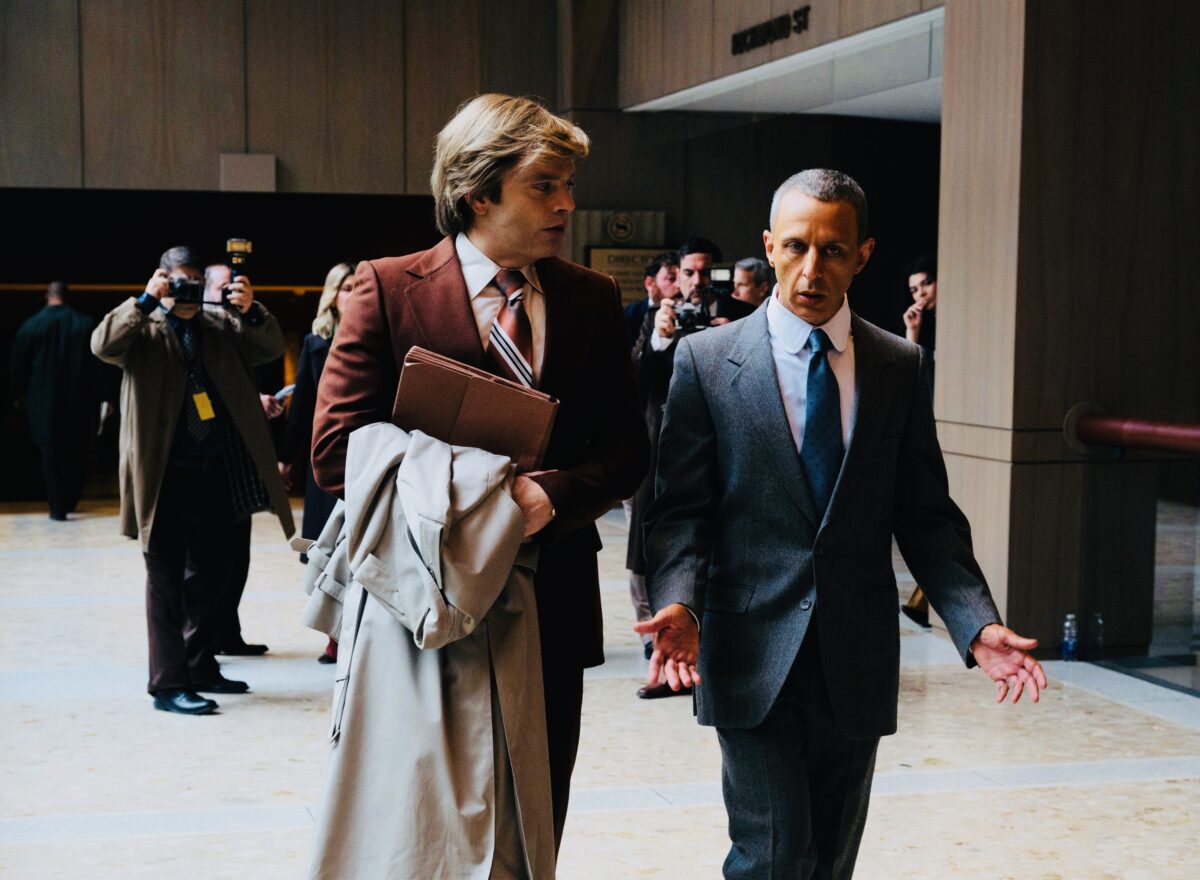Donald Trump will no doubt dislike Ali Abbasi’s movie, The Apprentice, with a passion.
Scheduled to open in Canadian theaters on October 11, this is a searingly scalding and compelling portrait of an egotistical and relentlessly ambitious New York City real estate tycoon reaching for the top. Focusing exclusively on his career before his foray into television as the host of The Apprentice and his election as the 45th president of the United States, it is set when the Big Apple was in a serious slump and Trump was in the midst of establishing himself as a practitioner of the “art of the deal.”
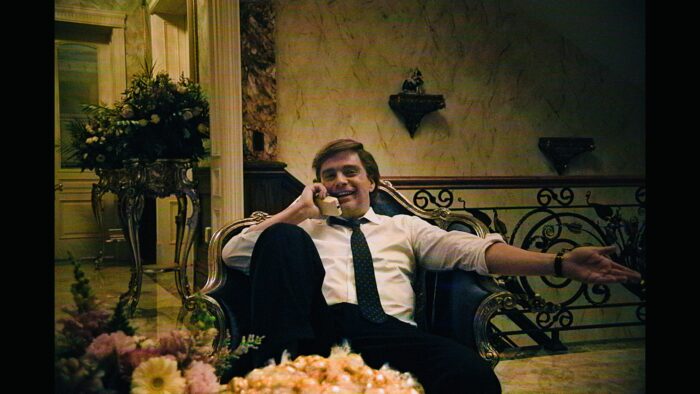
Trump, as seen here, is a mostly unattractive character. He cuts corners to avoid paying his fair share of taxes. He threatens the city’s mayor with a lawsuit. He cheats on his foreign-born wife. He abandons a dying friend who helped him climb the greasy ladder of success.
As masterfully portrayed by Sebastian Stan, Trump is a ruthless businessman with a “killer instinct.” He learns the tricks of the trade from Roy Cohn, the arch-conservative Jewish lawyer who helped convict the Russian spies Julius and Ethel Rosenberg in the 1950s. Cohn is brilliantly played by Jeremy Strong in a bravura performance.
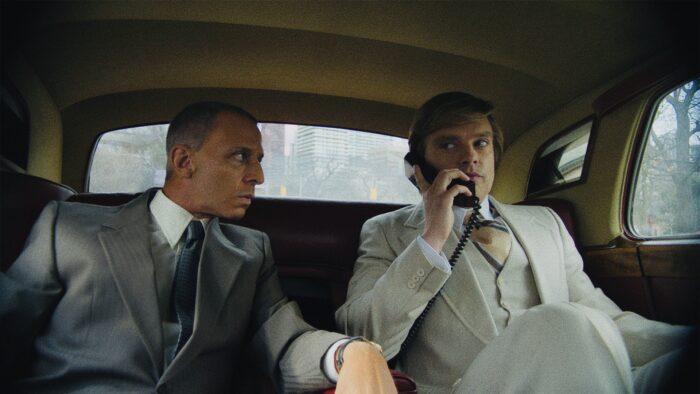
Trump meets Cohn, a hard and cynical type, in an upscale nightclub frequented by the rich and famous. At this point, Trump is mild and inoffensive in manner and definitely under the thumb of his domineering father, Fred (Martin Donovan), who founded and manages the family business.
He and Fred face a federal lawsuit charging them with racial discrimination in the rental of flats in their apartment buildings. Cohn, who agrees to be his lawyer, advises Trump to sue the government. Although Trump is repelled by Cohn’s brutal methods, he is ready to take his advice. Fred is skeptical, and, as he patronizingly points out, “How can I be a racist when I have a black driver?”
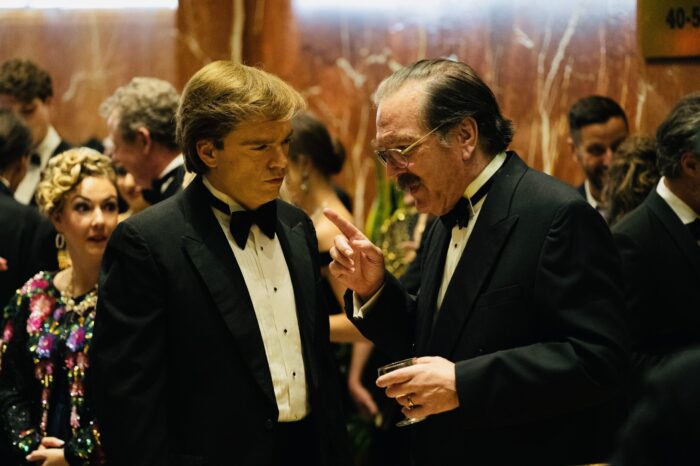
In the following scenes, Trump knocks on the doors of tenants to collect the monthly rent. He gives one tenant, a frail old woman, some slack. Another tenant throws boiling water at him before slamming the door in his face.
Trump is portrayed as a visionary who believes in the city’s future as a great and thriving metropolis. He wants to convert a seedy hotel in a crumbling neighborhood into a luxury hotel, but Fred’s narrow-minded associate dismisses his plan as a bad idea.
Cohn has far more faith than Trump’s father in his ability to think out of the box. “You’re one of a kind,” he compliments him. Later on, after Trump opens a casino in Atlantic City, Cohn says, “I’ve never met anyone that reminds me of myself.”
As his mentor, Cohn offers Trump valuable tips: Nothing but winning matters. Morality and truth are mere words. Keep your name in the newspapers.
Trump, though soft-spoken and relatively reticent at the outset, becomes increasingly self-confident, self-assured and nasty with the passage of time. And he never underestimates himself. “I’ve got flair and I’m smart,” he says immodestly, listing these traits as keys to his success. To Trump, the world is composed of “killers” (winners) and “losers.” He thinks he’s an artist inasmuch as he defines a deal as an art form.
Trump meets his first wife, Ivana (Maria Bakalova), in a club and is instantly smitten. He treats her and her friends to a sumptuous meal, only to learn she has a boyfriend and is engaged to be married. These impediments do not deter him. Further into the film, Trump grows alienated from Ivana and expresses a disinterest in her. After dismissing Ivana as a “business partner,” he assaults and rapes her. Shortly afterward, he’s seen in a room getting a blow job from his mistress.
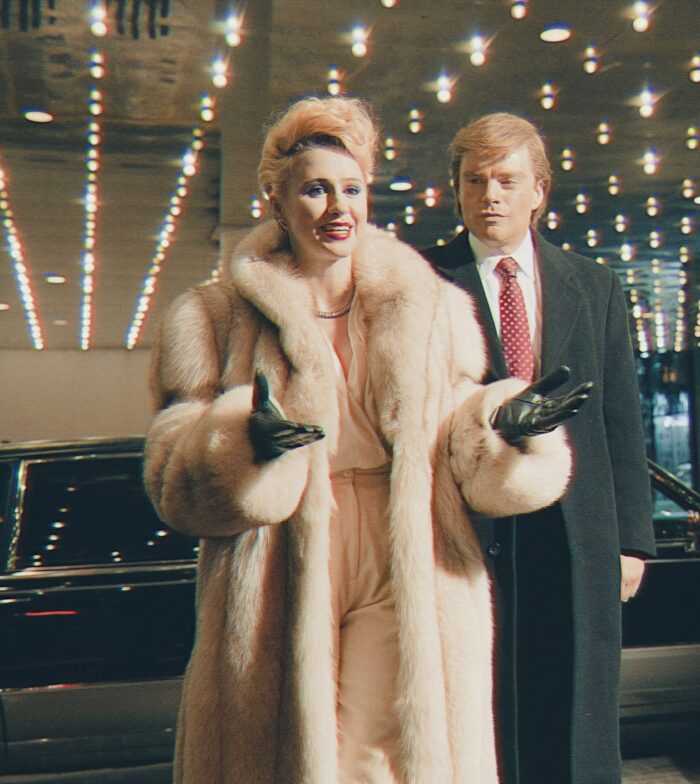
Trump is less than a straightforward entrepreneur. He defaults on his payments and bilks construction workers of their wages. And when the mayor rejects his request for a big tax break for one of his developments, the Trump Tower, he turns angry and surly. “You’re about to be sued, Mr. mayor,” he warns him as he leaves his office in a huff.
The film briefly touches on his worldview and political ambitions. He is a red-blooded patriot who believes that the U.S. is being “ripped off” by its allies. And when an interviewer asks what he would do if he lost his fortune, Trump replies he would run for the U.S. presidency. “Good answer,” says the interviewer.
As he becomes still more successful, Trump declines to take Cohn’s phone calls. By now, Cohn, a closet homosexual, is slowly dying of AIDS. When Cohn finally meets Trump, he lets loose with a verbal barrage. “You’re an ungrateful, cock-sucking nobody,” he shouts in a blistering rejoinder. “You’ve lost the last traces of your decency.”
Feeling ashamed of himself, Trump invites Cohn to his estate in Florida to celebrate Cohn’s birthday. Trump’s gift, reeking of narcissism, prompts Cohn to leave the dinner table.
Being a super narcissist, Trump submits to plastic surgery to reduce his expanding girth and an implant procedure to thicken his thinning hairline.
As the film reaches its denouement, Trump pontificates on the life lessons he has learned: Fight back and constantly attack. Deny everything and admit nothing. Never concede defeat.
This sounds a lot like the man who seeks reelection in next month’s presidential election.
